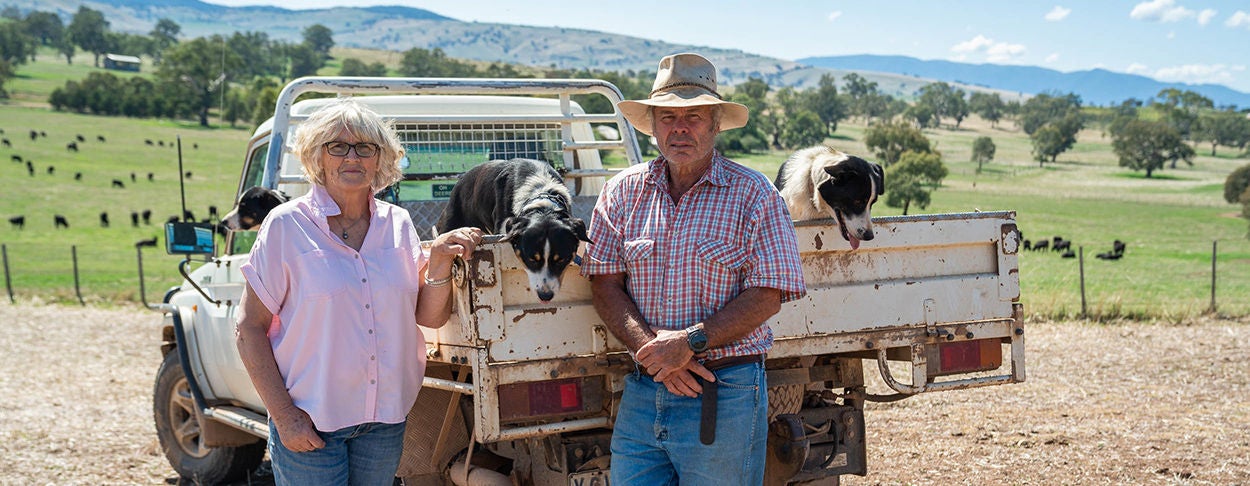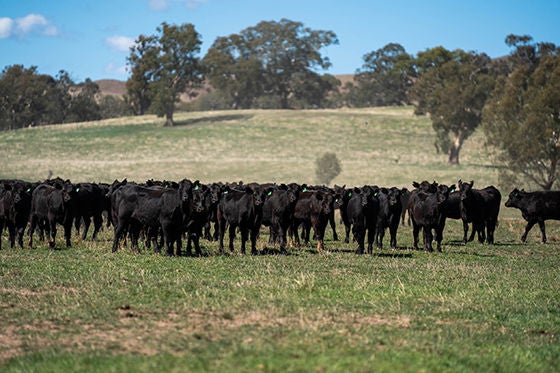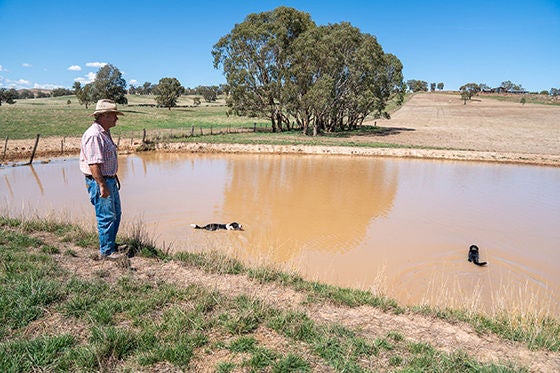Posted by on
07/07/2020
For beef producer Rod Manning and his son, Rodda, undertaking Rabobank’s Executive Development Program (EDP) proved a real turning point in the ongoing expansion of their farm business, Davilak Pastoral Company, in Mansfield Shire in north-eastern Victoria.
“In terms of knowledge, the EDP just opened doors for us that we would not have had access to otherwise. It was pivotal in the expansion of our business, and it put us on a trajectory where we just wanted to keep growing the business bigger and bigger,” Rod said.
Rod did the program in 2000, while Rodda, who took over management of the farm business about seven years ago, later followed his father’s example.
“The best thing I found about the course was that you were with like-minded people who really wanted to move their business forward,” Rod said.
That’s something that Rod can certainly relate to: “We’ve managed to double the size of our farm every seven to 10 years and we will continue to do so,” he said.
“When I bought my first block of land back in 1976, I ran 50 cows, and we’ve just kept buying up and building on that. We now have 1780 hectares of freehold land, with another 405 hectares under lease, and we run about 1400 to 1500 Autumn calving cows and close to 200 Spring calving cows.”
For about the last eight years, they have built further onto their business through supplying some of their turnoff to Coles supermarkets and other stores.

“We finish all our stock and we target Coles’ specifications for premium beef. We’re looking to build more on that as it’s worked out well for us,” Rod said.
It’s a long way from the days when Rod first arrived in Mansfield and established a large animal veterinary practice.
“I just started buying a bit of land here and a bit of land there. By 2002, the farm was starting to get larger and coming into a severe drought, so I sold my veterinary practice and worked full time on the farm,” Rod said.
“Working as a veterinary consultant actually gave me a very good look at a lot of different farming enterprises and I was always trying to focus in on what the top 20% were doing well to be successful.”
“The ability to recognise what the real profit drivers are on farm is imperative and discard all the distractions that we are constantly bombarded with daily.
“It’s really about having a high knowledge base, a good systems approach and high animal and pasture production skills. We are actually in the grass production business and the total amount of dry matter grown and utilised is the real production driver that allows us to carry more stock.

“We strive to adhere to best practice, whether it be in the pasture component of our business or the animal component of our business, or even the people in our business,” Rod said.
“You need to focus on those areas, set goals for where you want to be in five years and in 10 years, and make the business drive to that point.”
Between Rod, Rodda, who is a qualified agronomist, and Rodda’s wife Anna, who is a qualified veterinarian, Rod acknowledges there is quite a bit of knowledge in the business.
“We just keep modifying what we do and hopefully keep improving on it.
“One of the things that happens as you get bigger and bigger is that the economies of scale start to become extremely important, particularly in driving down the cost of production per kilo of beef out the gate. That doesn’t mean you cut back on things that drive production, you are just much more attentive to prioritizing expenditure on things that drive production such as pasture development.
“We tend to be a high input farm – we use a lot of fertiliser and lime and the best pasture species available. At the end of the day, you’re really only as good as the amount of dry matter per hectare that you can produce per year.”
Rod, who has been with Rabobank since it opened its doors in Australia, said he had benefited strongly from being able to form a relationship where he could have faith in what the bank would do.
“They have been very, very supportive of what we’ve done. They understand how we run our business and I truly feel that they believe in the long term nature of investing in agriculture,” he added.
“I believe that Rabobank will be standing behind us for a lot longer time than any other commercial bank would.”
And the benefits keep coming, with Rod valuing the advantages that come from attending EDP alumni events.
“You meet up with all these people who have successful businesses and you get an insight into all the things that are important to them. It’s about getting outside your business, having a look around and seeing what other people are doing and possible different pathways to solving a problem,” he said.
With his sights set firmly on ongoing growth for the business, Rod believes that there is a much more optimistic view of agriculture today than there was 10 to 15 years ago.
“We are seeing highly educated people coming back into agriculture and, from an economic point of view, there’s often now good returns on capital,” he said.
“The demand for food is only going to get higher and higher, and the means of production of food, which is farming, is going to go onto a really stellar pathway.”

